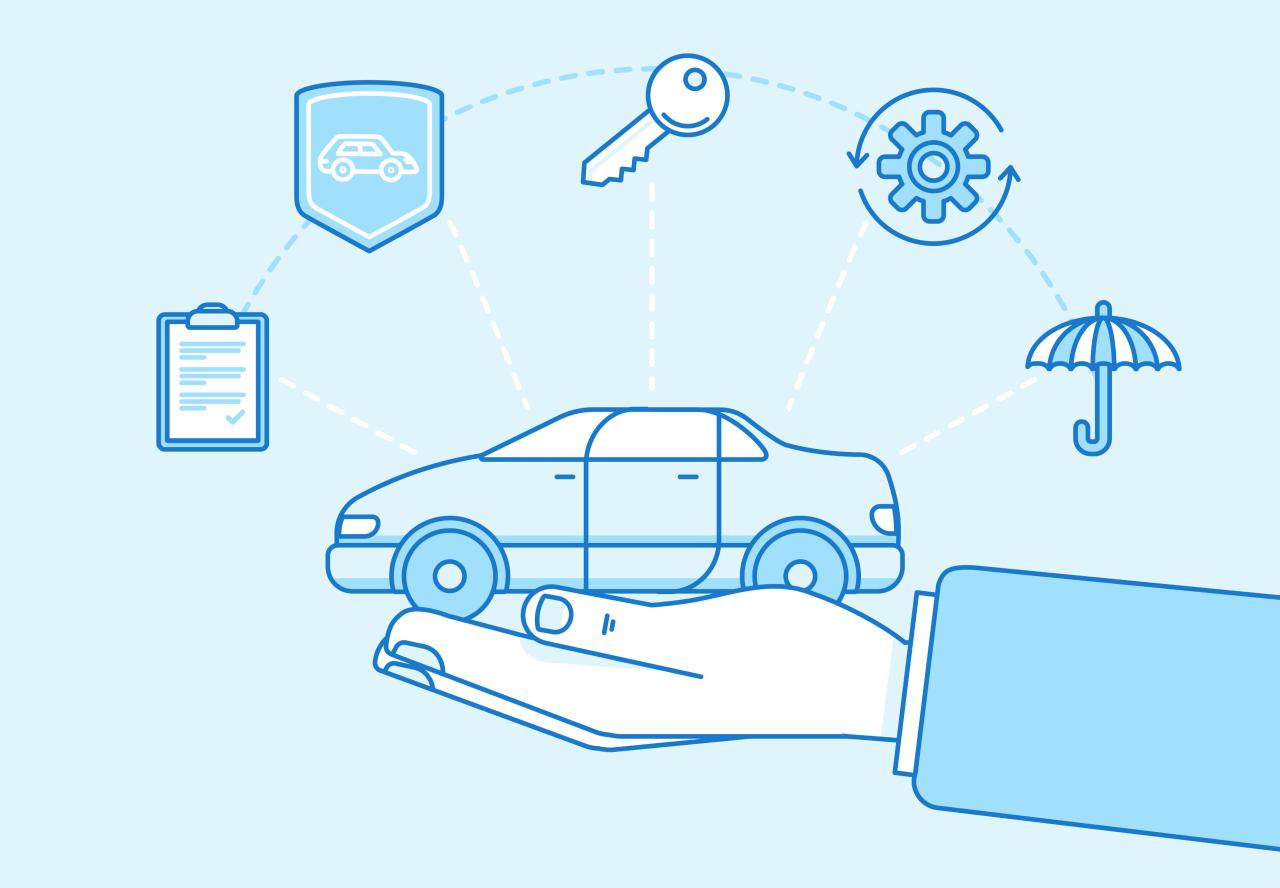Usage based insurance – In the realm of auto insurance, usage-based insurance (UBI) emerges as a groundbreaking concept, redefining the way we perceive insurance premiums. By leveraging data collected from telematics devices and other sources, UBI tailors insurance costs to individual driving behaviors, creating a fairer and more personalized insurance experience.
Delve into the intricacies of UBI, exploring its benefits and challenges, while uncovering the transformative potential it holds for the future of auto insurance.
Usage-Based Insurance Basics: Usage Based Insurance

Usage-based insurance (UBI) is a revolutionary insurance model that calculates premiums based on actual driving behavior rather than traditional factors like age, gender, and vehicle type. UBI leverages advanced technology to monitor and analyze driving data, providing insurers with valuable insights into policyholders’ risk profiles.
UBI programs collect data from various sources, including:
- Telematics devices:Installed in vehicles, these devices track mileage, speed, braking patterns, and cornering.
- Smartphone apps:Utilize GPS and sensors to monitor driving habits, including phone usage while driving.
- Vehicle diagnostics:Data from the vehicle’s computer system provides insights into maintenance and performance.
Unlike traditional insurance models that rely on estimates and averages, UBI considers individual driving behaviors, rewarding safe drivers with lower premiums and encouraging responsible driving practices.
Benefits and Challenges of Usage-Based Insurance

Usage-based insurance (UBI) offers a paradigm shift in the insurance industry by tailoring premiums to individual driving behaviors. It presents both opportunities and challenges that warrant exploration.
Benefits for Insurers
- Improved Risk Assessment:UBI provides insurers with granular data on driving patterns, enabling them to refine risk profiles and set premiums more accurately.
- Reduced Fraud:Telematics devices can detect unusual driving patterns, making it harder for policyholders to engage in fraudulent claims.
- Customer Segmentation:UBI allows insurers to segment customers based on their driving habits, creating tailored insurance products and incentives.
Benefits for Policyholders
- Personalized Premiums:UBI rewards safe drivers with lower premiums, promoting responsible driving behaviors.
- Feedback and Improvement:UBI provides policyholders with real-time feedback on their driving, enabling them to identify areas for improvement.
- Usage-Based Coverage:UBI offers flexibility by allowing policyholders to pay for insurance only when they drive, catering to infrequent drivers.
Challenges, Usage based insurance
- Privacy Concerns:UBI involves collecting sensitive driving data, raising privacy concerns among policyholders.
- Device Installation and Maintenance:Installing and maintaining telematics devices can be costly and inconvenient for policyholders.
- Data Interpretation:Insurers need robust algorithms to interpret the vast amount of driving data collected by UBI programs.
Addressing Privacy Concerns
Insurers can mitigate privacy concerns by implementing robust data security measures, obtaining explicit consent from policyholders, and providing clear explanations about data usage. Additionally, anonymizing data or using aggregated data can protect individual privacy while still providing valuable insights.
Future of Usage-Based Insurance

The future of usage-based insurance holds immense potential, driven by advancements in technology and evolving consumer preferences. Telematics and artificial intelligence (AI) are poised to reshape the industry, enabling insurers to gain deeper insights into driving behavior and tailor policies more accurately.
Impact of Telematics and AI
Telematics devices, installed in vehicles, collect real-time data on driving habits, such as speed, acceleration, braking, and location. This data is analyzed using AI algorithms to assess risk and determine premiums. By leveraging telematics, insurers can create more granular and personalized pricing models that reflect individual driving patterns.
Expansion into New Areas
Usage-based insurance is expected to expand beyond personal auto insurance into other areas. Commercial fleets, for instance, can benefit from telematics-based insurance to monitor driver behavior, optimize routing, and reduce fuel consumption. Additionally, usage-based insurance could be applied to shared mobility services, such as car-sharing and ride-hailing, to provide more equitable and flexible insurance options.
Epilogue
As the insurance industry embraces the transformative power of usage-based insurance, it paves the way for a future where premiums reflect driving habits, fostering safer roads and fairer pricing. UBI’s potential extends beyond personal auto insurance, opening up new avenues for innovation and customization in the broader insurance landscape.
Helpful Answers
What is usage-based insurance?
Usage-based insurance (UBI) is a type of auto insurance that uses data collected from telematics devices or other sources to determine premiums based on individual driving behaviors.
How does usage-based insurance work?
UBI programs collect data on factors such as mileage, driving time, speed, and braking habits. This data is analyzed to create a personalized risk profile for each driver, which is then used to calculate premiums.
What are the benefits of usage-based insurance?
UBI offers several benefits, including fairer premiums for low-risk drivers, potential discounts for safe driving habits, and access to personalized feedback to improve driving behavior.
What are the challenges of usage-based insurance?
UBI also presents some challenges, such as privacy concerns related to data collection, potential bias in data analysis, and the need for robust technology to ensure accurate data collection.
How is usage-based insurance expected to evolve in the future?
UBI is expected to continue evolving with advancements in technology, such as the integration of artificial intelligence (AI) and the expansion into new areas beyond personal auto insurance.